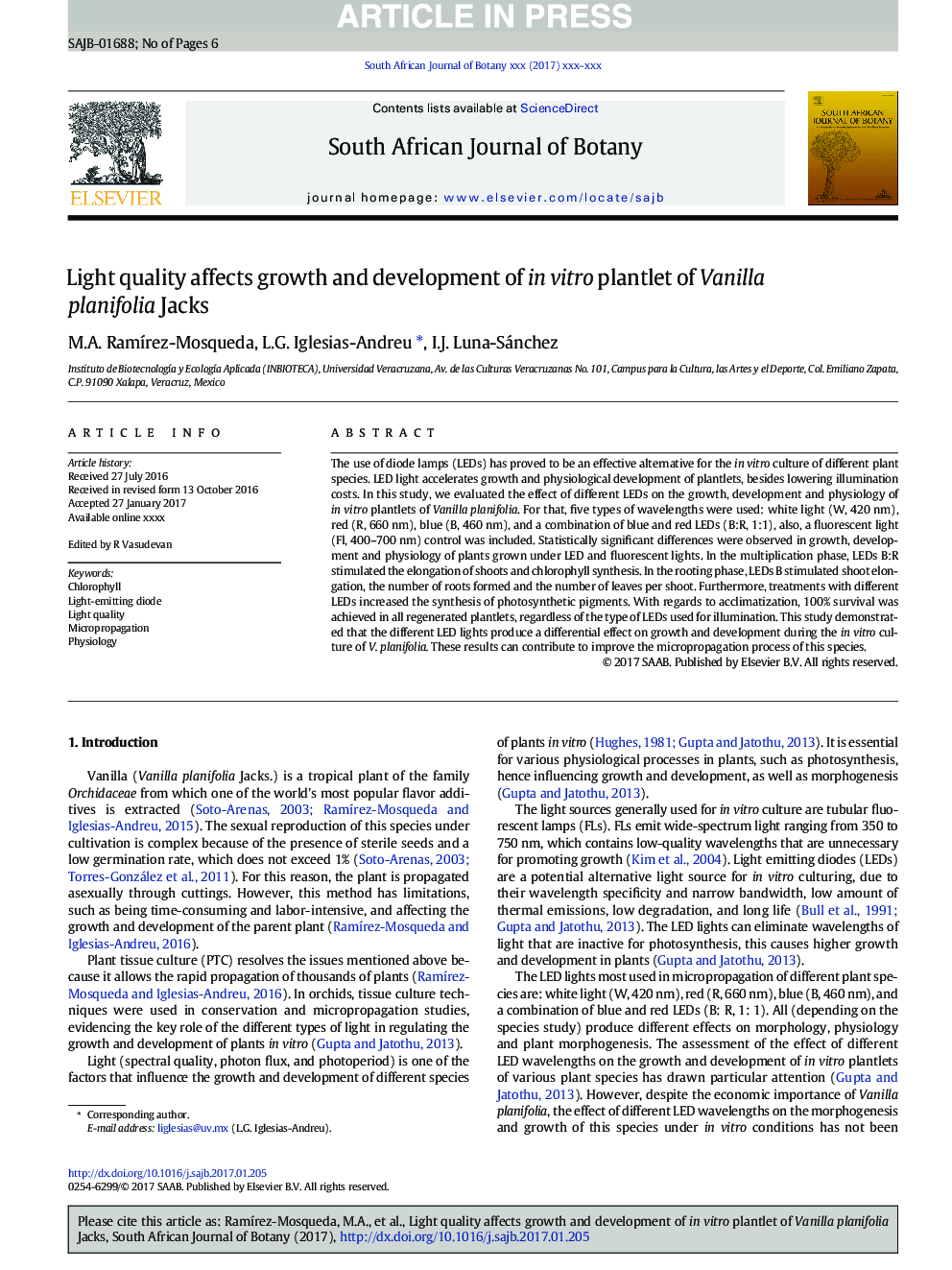| Article ID | Journal | Published Year | Pages | File Type |
|---|---|---|---|---|
| 5763057 | South African Journal of Botany | 2017 | 6 Pages |
Abstract
The use of diode lamps (LEDs) has proved to be an effective alternative for the in vitro culture of different plant species. LED light accelerates growth and physiological development of plantlets, besides lowering illumination costs. In this study, we evaluated the effect of different LEDs on the growth, development and physiology of in vitro plantlets of Vanilla planifolia. For that, five types of wavelengths were used: white light (W, 420Â nm), red (R, 660Â nm), blue (B, 460Â nm), and a combination of blue and red LEDs (B:R, 1:1), also, a fluorescent light (Fl, 400-700Â nm) control was included. Statistically significant differences were observed in growth, development and physiology of plants grown under LED and fluorescent lights. In the multiplication phase, LEDs B:R stimulated the elongation of shoots and chlorophyll synthesis. In the rooting phase, LEDs B stimulated shoot elongation, the number of roots formed and the number of leaves per shoot. Furthermore, treatments with different LEDs increased the synthesis of photosynthetic pigments. With regards to acclimatization, 100% survival was achieved in all regenerated plantlets, regardless of the type of LEDs used for illumination. This study demonstrated that the different LED lights produce a differential effect on growth and development during the in vitro culture of V. planifolia. These results can contribute to improve the micropropagation process of this species.
Related Topics
Life Sciences
Agricultural and Biological Sciences
Agronomy and Crop Science
Authors
M.A. RamÃrez-Mosqueda, L.G. Iglesias-Andreu, I.J. Luna-Sánchez,
